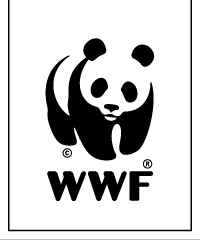Despite its unquestionable wealth of natural resources and comparative advantages, Greece distinctively lacks innovation and structures that foster the hatching of new ideas. From the central political level through the labyrinthine corridors of public administration and the framework of incentives and subsidies all the way to the educational system, it is evident that the central policy of choice is to remain stagnant while wrapping old ideas in new packaging over and over.
WWF Greece’s proposal for a living and sustainable Greek economy aims precisely at the indispensable overall reform that will pass the baton of development to new environmentally positive ideas that can significantly strengthen the real economy.
The following framework for the development of new green entrepreneurship in the fields of energy, tourism, industry and primary production in protected areas aims at addressing the lack of green innovation in Greece.
Shared clean energy: community renewable energy schemes
Developing renewable energy sources (RES) through cooperative schemes, that is, under the co-ownership of the members of a community or the residents of an area, can yield tangible and significant social, economic and environmental benefits, especially considering the need for zero-emissions electrical energy generation.
The current framework for RES development is rather discouraging for most entrepreneurial initiatives and even more so for those that lack the necessary funding*, such as community schemes.
European experience has shown that revenue from community RES schemes can be channeled to:
- repaying loans and other debt;
- maintaining and replacing equipment (e.g., replacing wind turbines);
- covering operational expenses and boosting employment at a local level;
- funding new RES projects;
- distributing possible dividends among shareholders;
- supporting local public benefit works, such as energy efficiency interventions;
- creating a fund or other kind of investment scheme to fund green and public benefit community projects.
Recycled tourist villages
Dozens of deserted villages are found scattered throughout Greece, chiefly in areas with remarkable landscapes and history. Whether in mountainous areas or on islands, these silent settlements can be restored - as faithfully as possible and using bioclimatic design methods - and revived through tourist uses.
The tourist development of abandoned settlements
- is a green investment with a small ecological footprint as it exploits existing buildings and facilities;
- exploits the tourism potential of depopulated areas (such as Mount Grammos, parts of Crete and many of the Cyclades islands), which in many cases neighbor areas of great ecological value;
- revives historical memory, which is a pole of attraction and a strong comparative advantage for Greece, and, combining it with ecological building, creates a green product that attracts quality tourism;
- can grow into a network of recycled tourist villages with a connecting narrative and a common marketing plan.
Breathing life into deserted villages must become a top priority in Greece’s tourism policy. Successfully reviving abandoned settlements requires recording them as well as their conservation and ownership status, establishing a simplified rental or expropriation procedure with prices that reflect the actual value of the property, incorporating settlements in spatial planning, addressing restoration projects as a funding priority and creating links between villages.
Earth networks: protected area products
Protected areas of various degrees of protection cover almost 35% of Greek territory and are treasuries of natural wealth. The recognition and certification of their agricultural products as “protected area products”, produced with methods that contribute to conserving each areas ecological value, could yield significant benefits to the natural environment and local population, particularly in times of increasing consumer concern regarding food safety and environmental issues.
Said products will be produced in environmentally friendly ways and with procedures that will ensure the traceability of their geographical origin.
Earth network activity could be developed in the following fields:
- Producer support: offering technical support to producers to achieve the implementation of ecological compliance and quality standards.
- Certification: certifying origin and compliance with specific standards of safety, sanitation and production without genetically modified organisms - certification for organic products will be limited to origin.
- Promotion and distribution: organizing a promotion and distribution network based on modern marketing and logistics approaches. Possible funding sources include subsidies, lending and equity financing.
Share this



